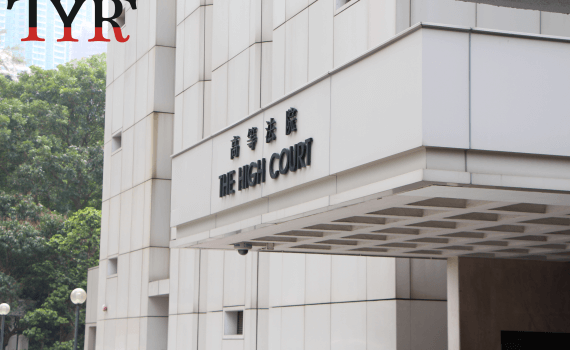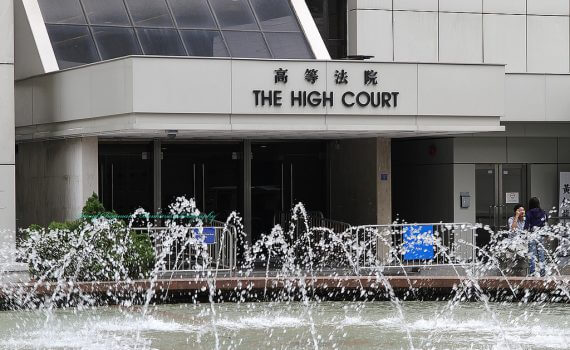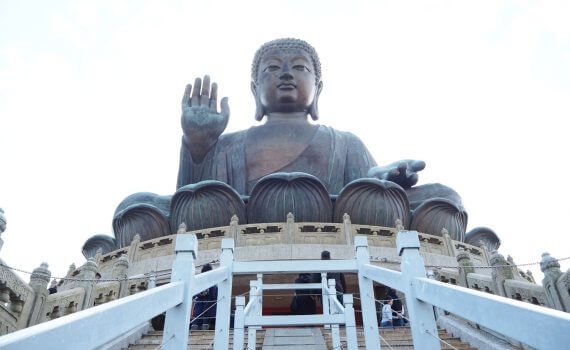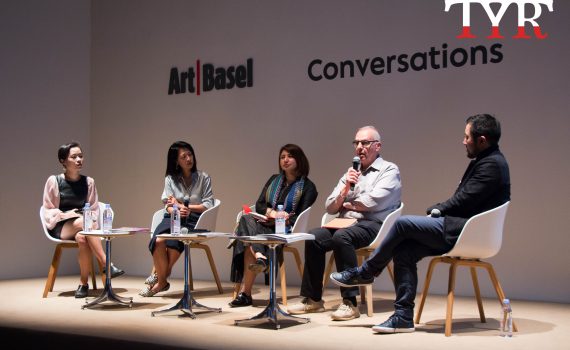The Young Reporter

Witness testifies that he heard one defendant said he murdered someone over the phone
- 2018-04-18
- Society
- The Young Reporter
- By: Anna KamEdited by: Elisa Luk、Japson Melanie Jane
- 2018-04-18
The trial of three men who are charged with murder and preventing lawful burial of Cheung Man-li, a 28-year-old man whose body was buried in cement, continued. The witness heard the defendant said he had murdered someone. Witness Tong King-shing, a friend of Mr. Tsang Cheung-yan "Ah T", one of the defendants, said there were conversations that they had murdered a person in Hong Kong over the phone. Mr. Tong, when questioned whether he had asked why Mr. Tsang was in Taiwan, said Mr. Tsang mentioned that he was travelling. In March 2016, he began to continuously ask Mr. Tong to lend him a couple thousand Hong Kong dollars. When Mr. Tsang called Mr. Tong in Taiwan again to ask for money, he heard clearly that there were people in the background. "I heard three male voices, including Ah Ho, the second defendant Lau Shek-ho and KK, the third defendant Cheung Sin-hang. Furthermore, he said that someone in the background of the conversation said "the dead body was buried in cement. Even the hydraulic, air fresheners and perfumes cannot cover the smell." After being questioned by the defendant's representative whether he was absolutely sure that it was Ah Ho talking, Mr. Tong replied that he was sure that Ah Ho called Ah T ‘dumb fuck’, while he was unsure who mentioned about the smell and the burial. Mr. Tong mentioned that Ah T told him that they "powed" a person in Hong Kong. "From my understanding, "powed" means murder but because they said it in a light-hearted matter, I did not think they were serious," explained Mr. Tong. Mr. Tong said that Mr. Tsang kept pestering him about lending money. In one instance, he asked him to borrow $6,000 from someone named "Papa" in Mong Kok, then wire the money …

Mong Kok Riot Trial: witness admitted to be father of two policemen
- 2018-03-29
- Society
- The Young Reporter
- By: Wallis WangEdited by: Angie Chan、Michael Shum
- 2018-03-29
The witness who reported the fifth defendant, Lam Lun-hing, in the Mong Kok riot in 2016, Yip Chi-shing, admitted that both of his sons are serving in the police force. He also said his elder son garrisoned in Mong Kok but claimed to be not sure whether his sons participated in the suppression. The defence barrister Jon Wong Kwok-ho suggested that Yip once liked a Facebook page called "Salute to Hong Kong Police". Yip admitted that but denied having registered in that group. Yip claimed that he was harassed by Lam in August 2015 during his patrol in a comic fair. He recognised him in a news video of the Mong Kok riot in February 2016 and then called the Police. Although it was hard to see people's faces clearly in the videos, Yip insisted that he could correctly recognise Lam through the height and profile of him. "It's impossible for me to recognise the wrong person," Yip said. The defence showed various screenshots from videos which focused on the man whom Yip believed to be Lam and asked Yip to describe them. In Yip's description, the colour of the jackets the man wore changes with the photos, but Yip explained that it’s only because of the difference of light condition. "The jacket was not important, I recognised him because of his height," Yip stated repeatedly. The defence pointed out that the information which the witness provided in court, such as the suspect's body shape and age, was different from his testimony. Yip explained that he might not have had the correct concept of the body size. In Yip's second testimony on April 8, 2016, Yip provided detailed information on Lam’s appearance such as hairstyle and deep eye socket. Yip also agreed that he went through plenty of videos and …

Defence suspected induction and insufficient evidence in cement-coffin murder
- 2018-03-29
- Society
- The Young Reporter
- By: Katherine LiEdited by: Michelle Ng
- 2018-03-29
At the body-in-cement case trial at The Court of First Instance yesterday, defence barrister Steve Tsui attempted to prove that the defendants were induced by the police as the court awaits possible new evidence. "Did you ever say (to the defendant) 'I heard you are a fighter, do you want to fight me now'?" Mr. Tsui asked a police officer who investigated this case and is called upon as witness, "and when the defendant asked to see a lawyer, did you ever hear your fellow investigator say 'don't play games with me, you are in a police station, no lawyer can help you now'?" The officer denied that the above conversation took place, and said that he never heard his fellow investigator make such statement as far as he knows. Mr. Tsui went on to ask him if he ever punched the forearm of the defendant and heard his fellow investigator suggest that the defendant should "perform well" in a videotaped interview to alleviate his sentence, but Mr. Lee still denied the claims. The barrister also questioned chief inspector Wesly Tse Tan-sang on the same topic which Mr. Tse said, "I wanted to find out the identity of those involved as soon as possible. It is the duty of the police." Tse was also interrogated on the process of how he "accompanied" the suspects back to Hong Kong from Taiwan and the procedures of their arrests, which he replied everything strictly abode to the rules and regulations of the police department and suspects were treated fairly. However, Mr.Tse confirmed that there is no eyewitness to this case, and only circumstantial evidence was present at the initial stage of their arrest. So far, the three suspects had admitted to "part-taking" the murder of Cheung Man-Li, but none confessed to the deed. The barrister …







